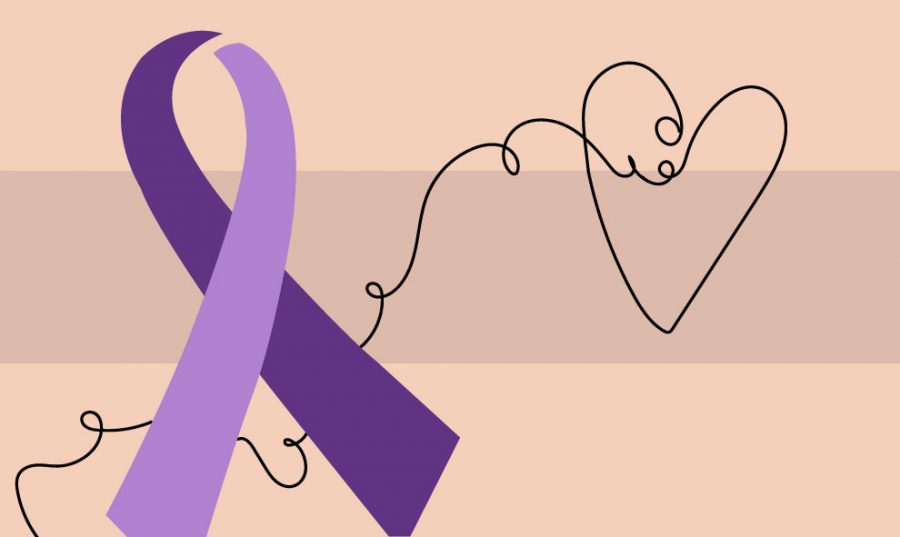Jana’s Campaign promotes dating violence awareness and prevention
In addition to being Black History Month, February highlights Teen Dating Violence Awareness. So, it was only fitting that on Feb. 13, a representative from the education and violence prevention organization, Jana’s Campaign, visited Baker University to promote awareness and prevention of domestic and dating violence.
The program was established in 2009 after Jana Lynne Mackey, the campaign’s namesake, was murdered by her ex-boyfriend in July 2008. Mackey was a University of Kansas law student and women’s rights activist with a passion for aiding victims of sexual assault and domestic violence.
According to an interview with Mackey’s parents, her stepfather Curt Brungardt believed that if a domestic violence murder could happen to Mackey, an “expert in the field,” it could happen to anyone. Therefore, her parents founded Jana’s Campaign in order to educate students on the signs of domestic violence in order to prevent a situation like Mackey’s.
The campaign specifically targets secondary, higher, and community-based education. Kaiti Dinges, executive director of Jana’s Campaign and facilitator for Baker’s presentation, explained the reasoning behind this.
“Majority of our work does go towards middle school and high school students because we believe if we educate students while they’re younger […] they ultimately will start to be in healthier relationships as they grow up,” Dinges said.
The program began with a video recap of Jana’s life, beginning when she was a child until after her tragic death. Following the video was a presentation on different issues surrounding domestic and dating violence. The facts and statistics shared throughout the presentation shocked the audience, beginning with the “Continuum of Violence,” which shows how violent behavior forms within a person. The process starts with bullying, followed by sexual harassment, intimate partner violence/dating violence, stalking, sexual violence, and finally, domestic violence.
When the audience was asked if they knew anyone who threatened to kill themselves if their partner broke up with them, a form of manipulation, multiple people raised their hands. This showed how common it is for people to witness different forms of domestic violence.
Dinges then shared more red flags everyone should watch for with friends, family and even oneself when it comes to relationships. This can include isolation, coercion, emotional abuse, jealousy, stalking and sexual assault.
The presentation made it obvious that if these actions become apparent, it is extremely important to step-in. It is true that nearly 90 percent of sexual assault goes unreported with 20 percent of college women and 6 percent of men are victims of sexual assault, according to Dinges.
Josh Doak, assistant director of student life, felt that it was important to bring Jana’s Campaign to campus to educate students on the red flags and ways to help fellow peers on issues of dating violence.
“Jana’s Campaign brought…that deeper conversation of those signs of what it means to be in a healthy relationship with an individual and how to go about helping your brothers and sisters,” Doak said.
Alpha Chi Omega’s philanthropy is Domestic Violence Awareness and chapter president Emma Pundt agrees with Doak. Pundt believes that Mackey serves as an important example of the difficulty in spotting domestic violence in our own lives.
“A lot of the times you don’t realize it is happening to you. You hear something about a symptom associated with domestic violence and… we don’t see them or have somebody tell them to us,” Pundt said.
So what can and should a bystander do in times of need? Dinges presented the three D’s of Bystander Prevention. The first option is “direct”; do something yourself. The next option is “distract,” somehow diffuse the situation. The final option is to “delegate,” find someone else that can help.
“We can prevent and work to be better about being active bystanders so if we see any kind of behaviors that seem unhealthy, we can call them out because if we create a society where those behaviors are not okay, then they won’t occur as often,” Dinges said.
The presentation not only provided information on how to foster healthy relationships and help others experiencing domestic violence, but it also gave hope to students like Freshman Savannah Nott, a women and gender studies major, that they can change the status quo in terms of domestic violence for future generations.
“I really do believe that we can change things in a generation,” Nott said, “so the more people that understand and learn and are exposed to presentations like this, the more we can raise awareness and the higher prevention rates end up.”

Rebekah Nelson is a senior from Newton, Kans, majoring in mass media and minoring in studio art. She works as the multimedia editor for The Baker Orange...







